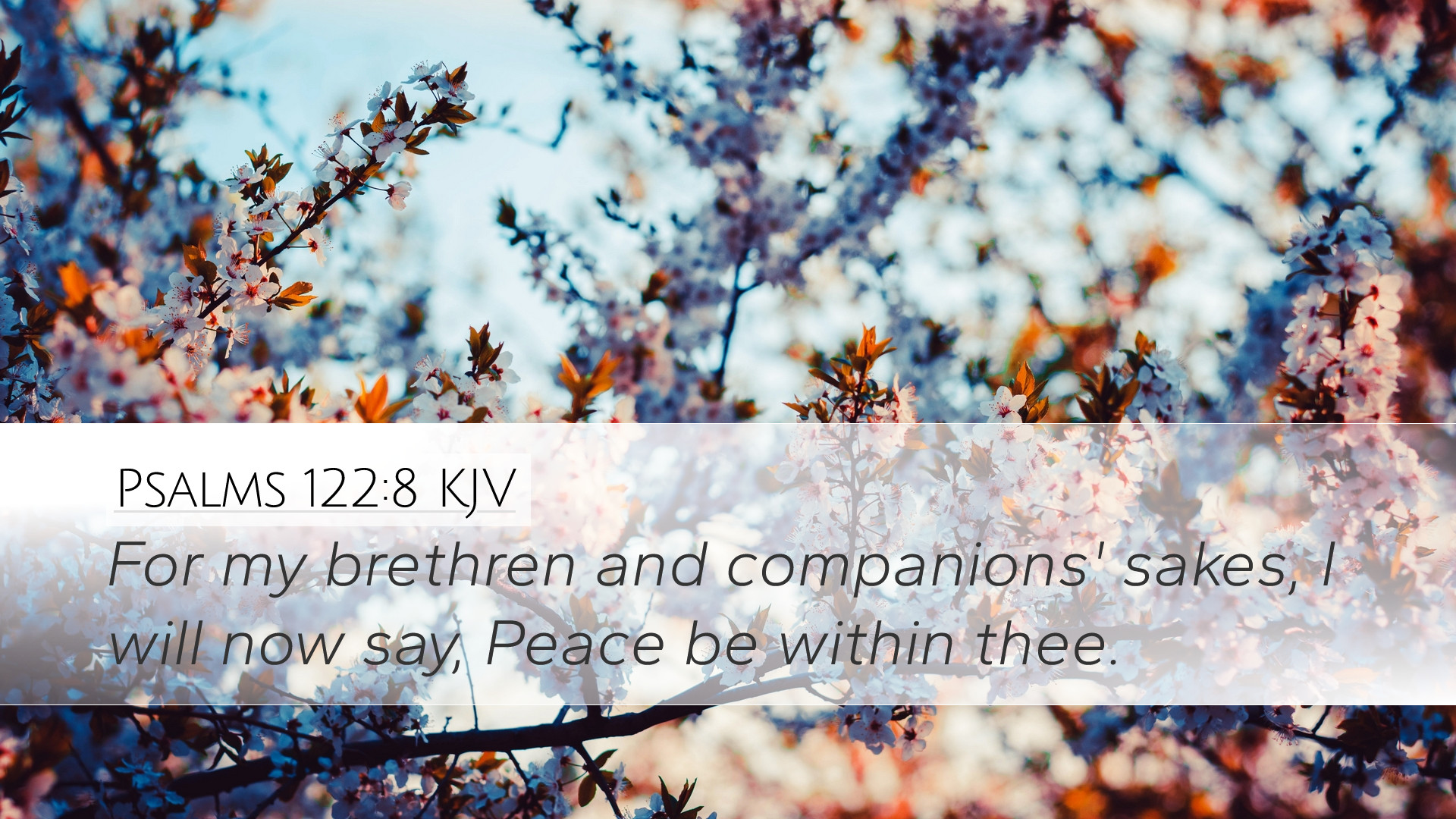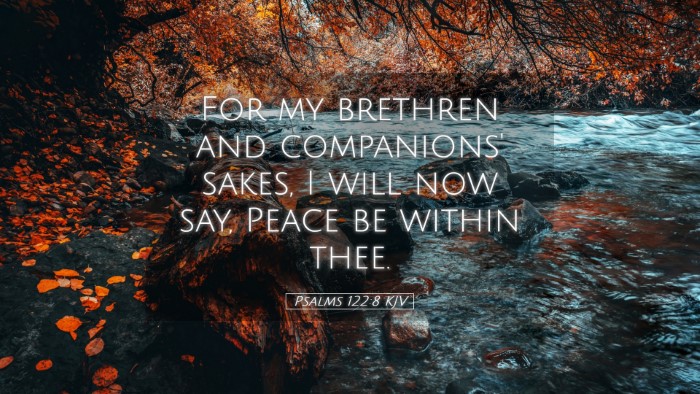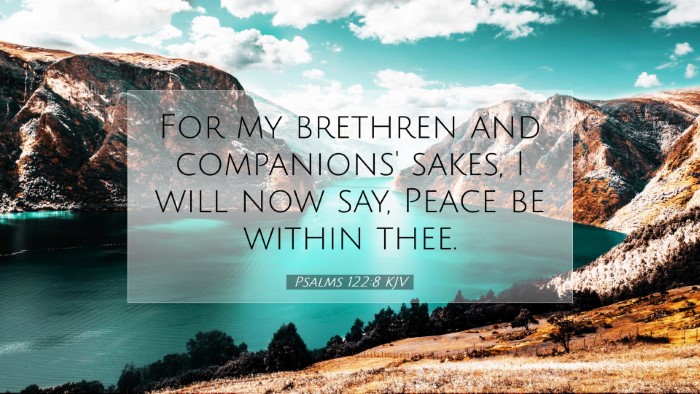Commentary on Psalm 122:8
Verse Reference: Psalm 122:8 - "For my brethren and companions' sakes, I will now say, Peace be within thee."
Introduction
Psalm 122 is one of the Songs of Ascents, attributed to David, expressing the psalmist's joy for Jerusalem and the peace that abounds in her city. In verse 8, the psalmist transition from personal praise to communal concern, specifically addressing the welfare of his brethren and companions.
Exegesis of Psalm 122:8
Matthew Henry, in his comprehensive commentary, emphasizes the communal aspect of the psalmist's focus. He argues that the expression "my brethren and companions" reflects a deep sense of belonging within the community of faith. He highlights that the psalm is not merely a personal reflection but an expression of solidarity with fellow believers.
Albert Barnes elaborates on the concept of "Peace be within thee," associating it with a desire for the spiritual and physical well-being of Jerusalem. Barnes notes that the term "peace" indicates a broader understanding that encompasses welfare, security, and the harmony of God's people. This peace is both a gift from God and a state for which the faithful are to continually aspire.
Adam Clarke points out the significance of the psalmist's statement, suggesting that it echoes the sentiments of intercessory prayer. Clarke examines the imperative nature of the phrase "I will now say," indicating a determined effort to seek the peace of the city. This reflects a proactive stance toward communal prayer and a concern for collective welfare.
Historical Context
The historic backdrop of Psalm 122 relates to the significance of Jerusalem in the life of the Israelites. As reflections of their identity and covenant with God, the psalms of ascent highlight the importance of community in worship and the centrality of Jerusalem as a place of divine presence.
- Religion: The psalm reflects the Jewish understanding of communal identity rooted in worship.
- Geography: Jerusalem is depicted as the focal point of God’s blessings.
- Social Dynamics: The relationships among the faithful in the context of peace and unity are paramount.
Theological Insights
From a theological perspective, Psalm 122:8 invites exploration of the nature of peace as a divine gift. The Hebrew word "shalom," often translated as peace, signifies wholeness and harmony and calls forth themes of reconciliation and community support. The psalm indicates that peace is not merely the absence of conflict but the presence of God’s blessing in the lives of His people.
Implications for Faith Communities
This psalm serves as a poignant reminder for contemporary faith communities about the importance of praying for one another. The exhortation to "say, peace be within thee" signifies the need for a culture of peace and unity among church members. Leaders and congregants alike are reminded of their responsibility to foster relationships characterized by love, support, and mutual concern.
Practical Applications
For those in pastoral leadership and ministry, Psalm 122:8 presents valuable lessons:
- Community Role: Pastors should embrace their role as intercessors for the church and encourage their congregations to collectively seek peace and unity.
- Prayer Initiatives: Organizing prayer events focused on communal peace can strengthen the ties within the church.
- Building Relationships: Creating spaces for dialogue and reconciliation within church contexts contributes to the spirit of shalom.
Conclusion
Psalm 122:8 encapsulates a profound truth about the interconnectedness of believers and the call to advocate for peace within the body of Christ. Understanding this verse through the lenses of historical context, theological reflection, and practical application can enrich the spiritual life of individuals and communities alike. As believers strive to embody the peace of Christ, they fulfill their calling as agents of reconciliation and unity in a world often marred by discord.


